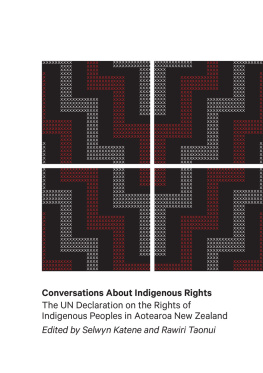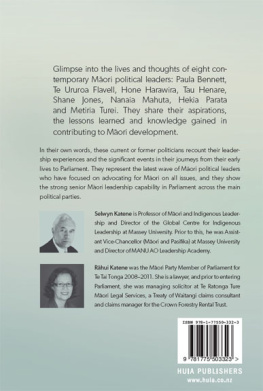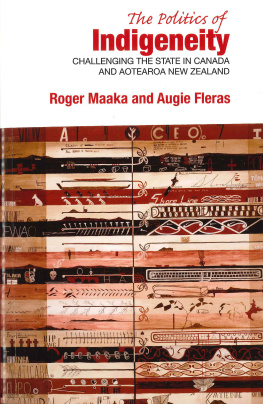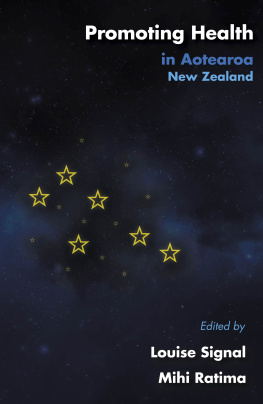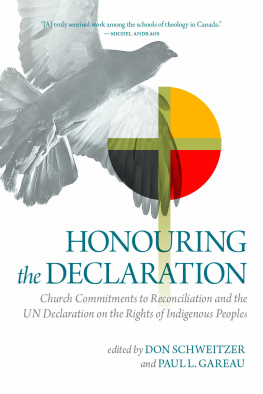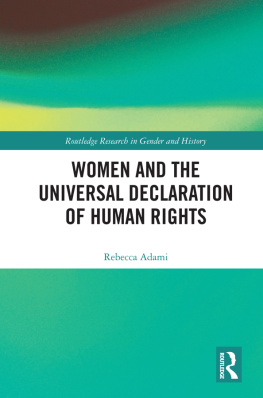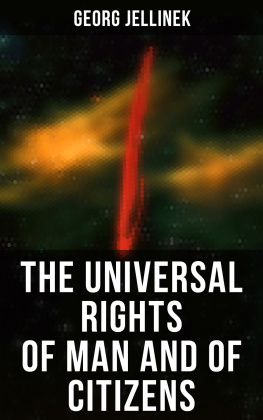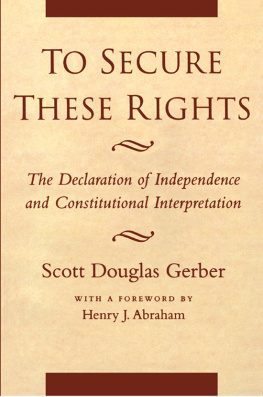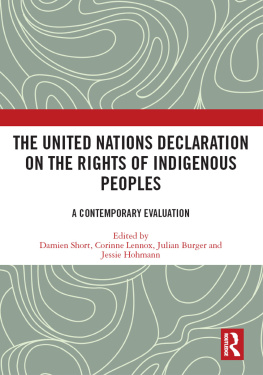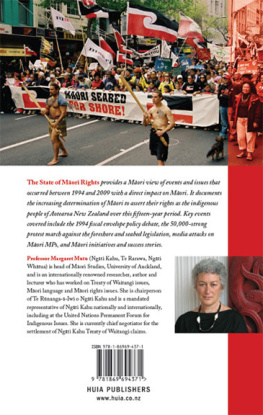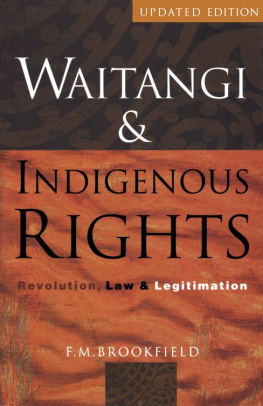FOREWORD
Ka tukuna atu ng mihi mahana ki a koutou katoa ng kanohi o rtou m. Ka mihi hoki ki te tini o rtou kua mene atu ki te p. N koutou i tangi atu, n koutou i tuku atu ki te kpu o te whenua, ar, n ttou katoa. N reira, e ng mate, takoto mai r, haere, hoki atu ki ki Hawaiki nui, ki Hawaiki roa, ki Hawaiki pmamao, Te Hono-i-Wairua. E kore koutou e warewaretia. Hoki mai ki a ttou te hunga ora, tn koutou, tn koutou, tn ttou katoa.
The United Nations Declaration on the Rights of Indigenous Peoples is a blueprint for implementing Te Tiriti o Waitangi, New Zealands founding constitutional document. Not long after rangatira signed this treaty, they realised that British immigrants were not abiding by it. Instead they were claiming a right to take over this country in the mistaken belief that whites are somehow inherently privileged and superior and Mori are somehow less than human. This belief derived from the fatally flawed Doctrine of Discovery developed in the fifteenth and sixteenth centuries in Europe to justify invading and taking over the lands and lives of other peoples. It has been used mercilessly in New Zealand since 1840 to deprive Mori of our homes, lands, territories, rights, freedom and lives, leaving us in a state of poverty, deprivation and marginalisation that exists to this day.
For well over a century now, Mori have been seeking international support to overcome the destructive oppression that British colonisation brought to our country. It was not until the establishment of the United Nations in answer to the atrocities committed during the world wars that we started to make some progress. With the adoption of the Universal Declaration of Human Rights in 1948 and then the legally binding International Covenants on Civil and Political Rights, and Economic, Social and Cultural Rights in 1966, the Doctrine of Discovery became internationally outlawed. And yet it persisted here in New Zealand, and in Australia, Canada and the United States, the so-called CANZUS states.
In the 1980s, drafting of the United Nations Declaration on the Rights of Indigenous Peoples commenced with several Mori experts participating, including Dr Moana Jackson, who chaired the group that initially drafted the Declaration, the late Dame Ngneko Minhinnick and Irihpeti Murchie, and Aroha Mead. Twenty-two years later it was finally adopted by the United Nations General Assembly with the support of 144 states. It was the dogged resistance and opposition of the CANZUS states, often led by New Zealand, that dragged out the drafting for so long. They succeeded in weakening the Declaration significantly and were the only states to oppose its adoption.
A conference marking the tenth Anniversary of the adoption of the United Nations Declaration on the Rights of Indigenous Peoples was held at Te Papa in Wellington on 56 September 2017. It was an opportunity not only to reminisce on the long, hard battle fought to have the Declaration adopted but also to consider its impact and relevance to date and its potential to deliver future benefits. It was also an opportunity to consider whether it has helped the CANZUS states to move on from their reliance on their rule of law adherence to the Doctrine of Discovery once each of them also eventually adopted the Declaration, and to repair the damage wrought by their colonisation of Indigenous lands and territories. This volume captures a number of the presentations delivered at the conference on these areas.
For Mori in New Zealand, it has not been apparent that the government has moved on from its reliance on the Doctrine of Discovery. Despite assertions made in United Nations forums that they are adhering to the Declaration, the situation at home has remained dire. Fundamental human rights, including the over-arching right to self-determination, continue to be denied to Mori. We continue to battle for recognition of our rights as Indigenous people, the tangata whenua of this country responsible for preserving the life-giving and life-sustaining powers of our Mother Earth, Papatnuku. Increasingly we are looking to the Declaration to articulate our rights and to the United Nations to hold New Zealand governments to account for their refusal to implement the Declaration.
In 2015 National Iwi Chairs Forum, an informal group of chairs of 73 Mori nations from throughout the country, established the Independent Monitoring Mechanism to report to the United Nations Expert Mechanism on the Rights of Indigenous Peoples on the governments compliance with and implementation of the Declaration. Its membership includes Dr Moana Jackson, Aroha Mead, Tracey Whare and Associate Professor Claire Charters, who have all spent many years fighting for Indigenous rights in the United Nations. Its reports to date have highlighted the lack of both compliance and implementation and have contributed to damning reports from other United Nations treaty bodies on the governments treatment of Mori.
Each treaty body has made specific recommendations on what the government is to do to adhere to its international obligations to Mori. This includes participating in a national conversation on the need for constitutional transformation including the proposals set out in the 2016 report of Matike Mai Aotearoa the Independent Working Group on Constitutional Transformation. After 178 years of struggle against our oppressors, it is clear that only constitutional transformation will free us from suffocating colonisation and ensure that the Declaration is implemented in New Zealand.
Professor Margaret Mutu
Chair, Independent Monitoring Mechanism
Karikari, April 2018
PREFACE
The rights of Indigenous peoples in New Zealand, but also around the world, are continually being impacted by government and business. New Zealand was slow to get on board the United Nations Declaration on the Rights of Indigenous Peoples express. I acknowledge Sir Pita Sharples role in getting New Zealand on the train. Now we have the chance to lead.
The Declaration breathes life into the existing human rights obligations of New Zealand towards Indigenous peoples. It provides a human rights lens and interprets at a domestic level the human rights dimensions of Te Tiriti o Waitangi New Zealands founding human rights and founding constitutional document. Te Tiriti o Waitangi and the Declaration are both strongly aligned and mutually consistent, and the Declaration assists with the interpretation and application of the articles of the Treaty and the principles of partnership, protection and participation.
So why is the Declaration so important? It is important because it looks to hold states to account around both the individual and the collective rights of Indigenous peoples around the world.
David Rutherford
Chief Commissioner
New Zealand Human Rights Commission
Introduction
Selwyn Katene and Rawiri Taonui
Editors
This book presents perspectives by writers from Aotearoa New Zealand and the international community reflecting on the tenth anniversary of the United Nations General Assemblys adoption of the United Nations Declaration on the Rights of Indigenous Peoples.
On Thursday 13 September 2007, with the support of 144 of the 193 member nations, the UN General Assembly adopted the UN Declaration on the Rights of Indigenous Peoples (the Declaration). That same year, Bolivia became the first country to formally recognise the Declaration in legislation. The first case in international law to cite the Declaration was in 2008, when the Supreme Court of Belize found in favour of Indigenous Mayan peoples against the government of Belize in a case over free, prior and informed consent regarding logging, hydroelectricity and mining development. In 2008, Ecuador adopted a new constitution that included reference to key rights under the Declaration. In 2009, Bolivia also recognised the Declaration in its new constitution.

